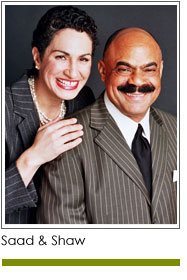 If you’re involved with a nonprofit, you’ve experienced the highs and lows of applying for grant funding. If you work for a foundation or granting agency, you’ve seen the good and the bad when it comes to reviewing proposals. With all of you in mind, we share our thoughts on the challenges and benefits related to proposal writing and reviewing.
If you’re involved with a nonprofit, you’ve experienced the highs and lows of applying for grant funding. If you work for a foundation or granting agency, you’ve seen the good and the bad when it comes to reviewing proposals. With all of you in mind, we share our thoughts on the challenges and benefits related to proposal writing and reviewing. If you are a nonprofit you are always looking for grant opportunities. You may be invited to apply for a grant, or maybe you read about an opportunity. In all cases you must eventually write the proposal, and this can be where frustration sets in. Crafting a proposal is a lot of work. You need to answer questions you may feel are irrelevant. You have to assemble and compile board lists, budgets, audited financials, diversity information, articles of incorporation and more. Some funders will have you apply through an online portal with questions that have a limitation on how many words or characters you can use to respond. Questions can range from anticipated impact based on the size of the grant you are requesting, to descriptions of partnerships, to a request for your “uniqueness” in the community. Almost all want to know about your “sustainability.”
Creating a grant proposal can be a very painful process, especially if your nonprofit is new to the process. It can also be a mirror for your organization, revealing your strengths and weaknesses in ways you may not have seen before. Questions asked in a proposal application can cause a nonprofit to step back and look at things in a way they hadn’t considered before.
If you work for a foundation or granting agency you may find yourself overwhelmed with applications for funding. As you read through them you may begin criticizing people’s grammar; wondering if the document was written by a committee; and questioning the competency of the organization based on their writing. Don’t do that. Take a deep breath and remember you are making recommendations for funding – you are not giving an award for sentence structure, narrative flow, or ease of reading. Delivering services or advocating for a cause is not the same as writing a proposal: take time to discern the work that the nonprofit is engaged in and evaluate the proposal based on community needs. Nonprofits with small budgets cannot afford to hire proposal writers.
If you can, ask yourself and your team to consider what it will cost a nonprofit in terms of time and money to put together a proposal. How do these costs and the information requested compare with the amount of funding you will provide? Should be there be an “EZ” grant application? Do you really need all the information you request? Is it serving as a repository for research that influences the field, or, perhaps, is your application an old document that program officers from years gone by created?
Let’s all work together to make proposal writing easier and focus on the important work of nonprofits.
Copyright 2020
Mel and Pearl Shaw of Saad&Shaw – Comprehensive Fund Development Services. Let us help you find your way through this unknown time. Video and phone conferencing services always available. Call us at (901) 522-8727. www.saadandshaw.com.
















